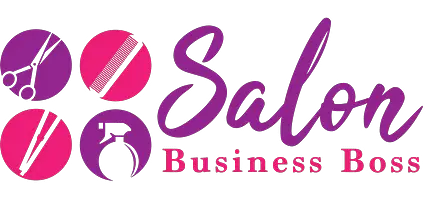The hair salon industry has witnessed remarkable growth over the years, making it an enticing venture for aspiring entrepreneurs. For those looking to step into this thriving sector, hair salon franchises offer a great opportunity. However, before diving into this business model, it is crucial to comprehend the costs involved.
Hair salon franchise cost can range from $20,000 to $69,500. The initial investment includes franchise fees, location setup, equipment, staffing, marketing, inventory, and more. A detailed budget and thorough research are vital for success in this dynamic and rewarding industry.
1. Franchise Fees and Initial Investment:
When embarking on the journey of starting a hair salon franchise, one of the primary and most significant costs to consider is the franchise fee. This initial one-time payment is a critical component of the agreement, granting the franchisee the right to utilize the franchisor’s well-established brand, proven business model, and ongoing support. The franchise fee is influenced by various factors, notably the brand’s reputation and popularity in the market. As a result, franchise fees for hair salons can vary considerably, generally falling within the range of $10,000 to $40,000.
However, the financial outlay does not end with the franchise fee alone. Other initial investments must be factored into the budget. Among these additional costs are training and orientation expenses, which are necessary to ensure that the franchisee and their team are well-versed in the franchisor’s operational methods and service standards. While training costs can vary depending on the complexity and duration of the program, they typically amount to a few thousand dollars.
In essence, while the franchise fee is the cornerstone of the initial investment, prospective hair salon franchisees should also account for supplementary expenses, such as training and orientation costs, to have a comprehensive understanding of the financial commitment involved. By diligently evaluating these expenses and budgeting appropriately, aspiring franchisees can position themselves for a successful and profitable venture within the dynamic and competitive hair salon industry.
2. Location Selection:
The location of a hair salon is a critical factor that can significantly impact its success and profitability. Choosing the right location can make all the difference in attracting a steady flow of customers and building a loyal clientele. Ideally, hair salons thrive in prime locations situated within busy commercial areas or bustling shopping malls, as these places tend to draw high foot traffic and offer excellent visibility to potential clients.
However, the benefits of such prime locations often come with higher rental costs. Entrepreneurs looking to secure an ideal location for their hair salon should be prepared to invest a substantial amount of their initial budget. The rental expenses can vary based on factors such as the specific location, size of the space, and the level of demand for commercial properties in the area.
In metropolitan areas or popular shopping districts, rental costs can be at the higher end of the spectrum, ranging from $15,000 to $20,000 per month. On the other hand, in smaller towns or less busy areas, salon owners might find more affordable options, with monthly rental costs ranging from $5,000 to $10,000.
Investing in a strategic location is a crucial aspect of the hair salon business, as it can lead to increased walk-in customers and higher visibility, boosting the salon’s chances of success. By carefully evaluating their budget and market research, entrepreneurs can strike a balance between rental costs and potential returns to secure a location that positions their hair salon for long-term growth and profitability.
3. Salon Setup and Equipment:

Creating an appealing and welcoming ambiance is crucial for any hair salon seeking to attract and retain customers. The salon setup and equipment play a pivotal role in achieving this goal. The total cost for setting up a salon can vary significantly, depending on factors such as the salon’s size and the level of luxury desired.
Entrepreneurs can anticipate allocating an average budget ranging from $10,000 to $30,000 for salon setup and equipment. This budget typically includes the cost of furnishing the space with comfortable and stylish furniture, investing in high-quality salon stations, hairdressing chairs, and well-designed mirrors to enhance customer experience.
Furthermore, adequate and flattering lighting is essential in a hair salon to enable hairstylists to work effectively and ensure clients’ satisfaction with their new look. Therefore, lighting fixtures that strike a balance between functionality and aesthetics are also part of the investment.
In addition to these primary expenses, other necessary equipment such as hair dryers, hair styling tools, shampoo bowls, and salon software for efficient management may be included in the budget.
By carefully planning and considering the salon’s unique vision and target market, franchisees can strike the right balance between cost and quality to create an inviting and professional space that leaves a lasting impression on clients.
Read more about: Know Before You Go: Understanding Salon Set Up Cost
4. Staffing and Training:
The success of a hair salon franchise hinges significantly on the expertise and skill of its staff. Franchisees must budget appropriately for staffing, aiming to hire a team of professional hairstylists, receptionists, and assistants who can deliver exceptional customer service.
Staffing costs can vary depending on factors like the salon’s size, the local labor market, and the level of experience and specialization desired in the team. On average, franchisees can expect to allocate a budget ranging from $5,000 to $15,000 to cover salaries, benefits, and ongoing training programs.
Investing in ongoing training for the staff is crucial to ensure they stay updated with the latest trends, techniques, and products in the hair care industry. Regular training sessions help maintain the salon’s competitive edge and ensure that the team can meet the diverse needs and preferences of clients.
5. Marketing and Advertising:
In the competitive landscape of the hair salon industry, establishing a strong and recognizable brand presence is essential for attracting a steady stream of clients. Effective marketing and advertising strategies are the key to achieving this goal. Franchisees should allocate a dedicated budget for marketing initiatives to raise awareness about their salon and its unique offerings.
The marketing budget typically ranges from $3,000 to $10,000, depending on the scale and reach of the campaigns. Online marketing is vital in today’s digital age, encompassing website development, search engine optimization (SEO), and online advertising to target potential clients actively seeking hair salon services.
Social media promotions are equally valuable, leveraging popular platforms like Facebook, Instagram, and Twitter to engage with the target audience, showcase the salon’s work, and encourage customer interaction. Additionally, franchisees can invest in well-designed print materials, such as flyers, brochures, and business cards, to distribute locally and attract walk-in customers.
Local advertising through community events, partnerships, and sponsorships also helps raise brand visibility and foster connections with the local audience. Engaging in promotional offers, loyalty programs, and referral incentives can further entice clients and build a loyal customer base.
6. Inventory and Products:
An extensive inventory of hair care products, styling tools, and accessories is fundamental for the smooth operation of a hair salon. To cater to diverse customer needs and preferences, franchisees must budget for both the initial inventory and ongoing restocking.
The cost of the initial inventory can vary widely based on the product selection and the salon’s brand reputation. On average, franchisees should anticipate allocating between $2,000 to $8,000 for stocking the salon’s shelves with high-quality hair care products from trusted brands. Offering a wide range of hair products, such as shampoos, conditioners, styling gels, and serums, ensures clients have plenty of options to choose from.
Maintaining a well-stocked inventory is an ongoing process. Franchisees need to replenish products regularly to meet customer demands and introduce new items as trends evolve. The restocking budget typically depends on the salon’s volume of clients and the rate of product consumption. A prudent approach involves closely monitoring inventory levels and aligning restocking frequency with customer demand to avoid overstocking or shortages.
7. Insurance and Legal Fees:

Protecting the hair salon franchise and its assets is a critical aspect of responsible business management. To safeguard against unforeseen events and potential liabilities, franchisees must allocate funds for comprehensive business insurance. The cost of business insurance can vary depending on the coverage and insurance provider. On average, franchisees should expect to invest between $2,000 to $5,000 annually for insurance coverage.
Comprehensive business insurance typically includes general liability coverage, which protects against claims related to property damage, bodily injury, or personal injury that might occur on the salon premises. Additionally, professional liability insurance is essential to cover any claims arising from unsatisfactory services or alleged negligence by salon staff.
Aside from insurance, franchisees need to account for legal fees associated with setting up the franchise agreement and lease agreements. These legal expenses are vital to ensure that all contractual obligations are clearly outlined and legally binding. On average, legal fees can amount to approximately $2,000 to $4,000, depending on the complexity of the agreements and legal services required.
By proactively investing in comprehensive business insurance and seeking professional legal advice during the setup phase, franchisees can protect their investment and navigate potential challenges with confidence and peace of mind.
Read more about: The Cost of Opening a Hair and Nail Salon
8. Working Capital and Contingency Fund:
Maintaining sufficient working capital is essential for the day-to-day operational expenses of a hair salon franchise. Especially during the initial months when the salon may not generate substantial revenue, having adequate working capital ensures smooth operations and keeps the business running without disruptions. Franchisees should allocate an estimated amount ranging from $5,000 to $15,000 for working capital.
Working capital covers various expenses, including rent, utilities, inventory restocking, staff salaries, marketing efforts, and other ongoing costs necessary for daily operations. Having sufficient working capital provides the flexibility to weather fluctuations in revenue and unforeseen circumstances.
Establishing a contingency fund is equally crucial. Unforeseen challenges, such as equipment breakdowns or unexpected repair costs, can arise at any time. The contingency fund acts as a safety net to address these unexpected expenses without impacting the salon’s overall financial stability.
By diligently managing working capital and maintaining a contingency reserve, franchisees can navigate the business’s initial stages with financial resilience and ensure the salon’s continued growth and success in the long run.
Conclusion
Embarking on a hair salon franchise journey can be a lucrative endeavor, but it requires meticulous financial planning and a clear understanding of the costs involved. From franchise fees to salon setup, equipment, staffing, marketing, and inventory, the investment can range from $20,000 to $69,500, depending on various factors. Aspiring entrepreneurs should conduct thorough research and carefully assess their budget to make informed decisions and maximize their chances of success in the dynamic and rewarding world of hair salons.
Frequently Asked Questions

1. Are there any additional expenses like insurance and legal fees?
Yes, budget approximately $2,000 to $5,000 annually for comprehensive business insurance and $2,000 to $4,000 for legal fees.
2. How much working capital should I set aside?
Franchisees should have a working capital reserve of around $5,000 to $15,000 to manage daily operational expenses.
3. What happens if the initial budget exceeds expectations?
It’s wise to have a contingency fund to address unexpected challenges and additional expenses.
To learn more on how to start you own salon checkout my startup documents here.
Please note that the contents of this blog are for informational and entertainment purposes only and should not be construed as legal advice. Any action taken based on the information provided in this blog is solely at your own risk. Additionally, all images used in this blog are generated under the CC0 license of Creative Commons, which means they are free to use for any purpose without attribution.

About the author. Entrepreneur and Salon Business Fan.
Hi! I am Shawn and I am a happy individual who happens to be an entrepreneur. I have owned several types of businesses in my life from a coffee shop to an import and export business to an online review business plus a few more and now I create online salon business resources for those interested in starting new ventures. It’s demanding work but I love it. I do it for those passionate about their business and their goals. That’s why when I meet a salon business owner, I see myself. I know how hard the struggle is to retain clients, find good employees and keep the business growing all while trying to stay competitive.
That’s why I created Salon Business Boss: I want to help salon business owners like you build a thriving business that brings you endless joy and supports your ideal lifestyle.

